Why Korean Street Food Is a Must-Try
If you really want to understand Korean culture, there’s no better way than tasting its street food. Affordable, flavorful, and available everywhere from bustling markets to quiet side streets, Korean street food is an adventure for your taste buds.
Street food in Korea is not just about eating – it’s about the experience: chatting with vendors, standing shoulder-to-shoulder with locals, and warming your hands over a steaming cup of broth on a winter night.

Iconic Korean Street Foods
떡볶이 (Tteokbokki – Spicy Rice Cakes)
Tteokbokki is perhaps the king of Korean street food. Made with chewy rice cakes simmered in a sweet and spicy gochujang-based sauce, it’s both comforting and addictive.
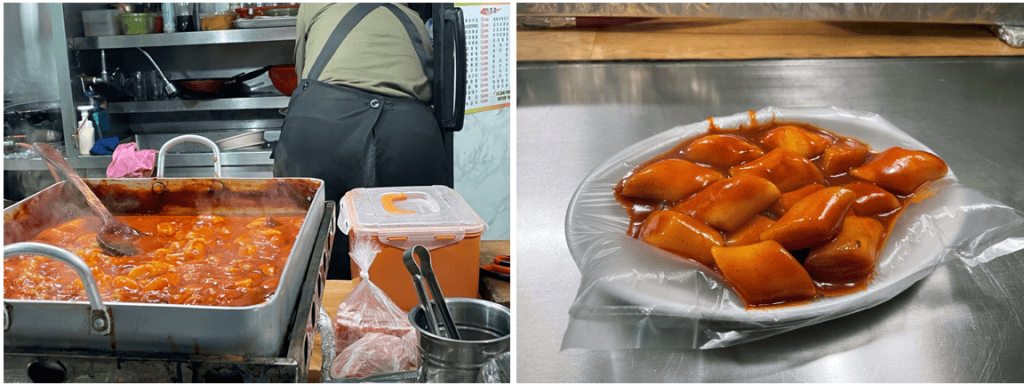
호떡 (Hotteok – Sweet Pancakes)
Hotteok is a winter favorite: a warm, fried pancake filled with brown sugar, cinnamon, and nuts. Biting into one on a cold day feels like pure happiness.

순대 (Soondae – Korean Blood Sausage)
Soondae might look intimidating, but it’s delicious. Made with pig’s intestines stuffed with noodles, barley, and blood, it’s often served with salt and spicy sauce.

오뎅 (Eomuk – Fish Cake Skewers)
Nothing beats the comfort of a steaming skewer of eomuk on a chilly night. Fish cakes simmer in a light broth, and vendors usually serve them with a cup of hot soup. It’s cheap, filling, and warming – a true Korean classic.

치즈 김밥 (Cheese Kimbap – Mini Seaweed Rolls)
Kimbap is Korea’s answer to sushi, but with its own flair. Street vendors often make bite-sized versions filled with rice, vegetables, and cheese for a creamy twist. Perfect for snacking on the go!

닭꼬치 (Dak-kkochi – Chicken Skewers)
Juicy chicken skewers grilled over charcoal and brushed with a sweet-spicy sauce are a festival favorite. Vendors often sprinkle sesame seeds and green onions on top for extra flavor.
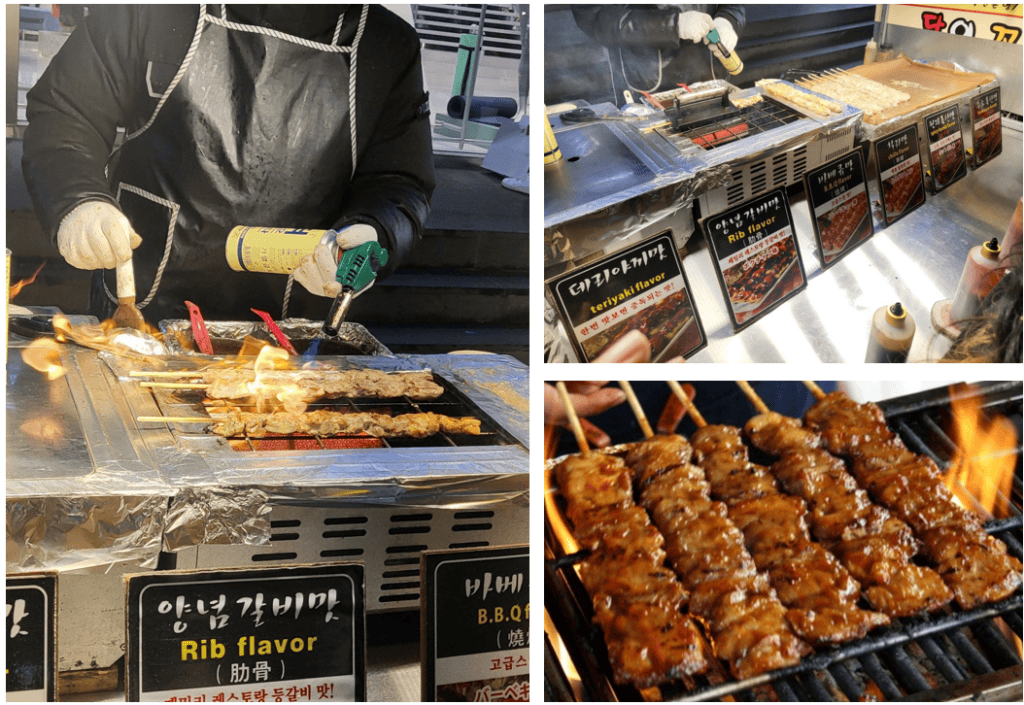
붕어빵 (Bungeoppang – Fish-Shaped Pastry)
This iconic fish-shaped pastry is filled with sweet red bean paste, custard, or chocolate. Crispy on the outside and soft inside, it’s a nostalgic winter treat for many Koreans.

만두 (Mandu – Dumplings)
Korean dumplings come in many forms – steamed, fried, or boiled in soup. Street vendors often sell big, fluffy mandu filled with pork, glass noodles, and vegetables.
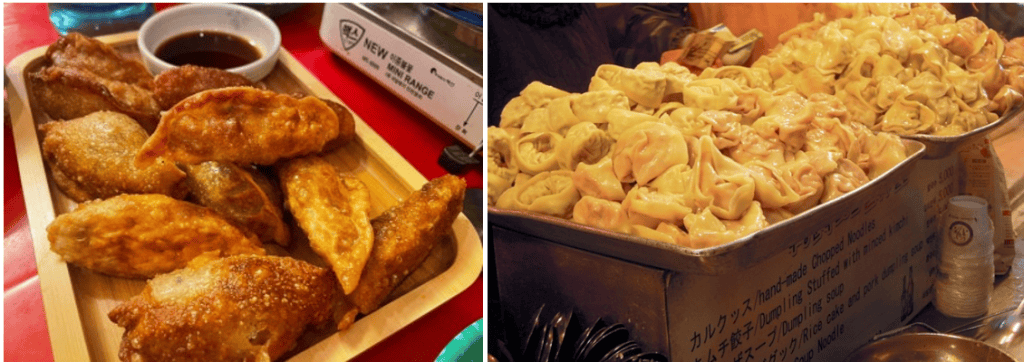
The Street Food Experience in Korea
Korean street food isn’t just about flavors – it’s about atmosphere. Picture neon signs glowing overhead, the sizzling sounds of grills, and the smell of spicy sauce filling the air. Street vendors often chat with customers, making the experience personal and lively.
Where to Find the Best Street Food
명동 (Myeongdong – Seoul)
Famous for K-Beauty and shopping, Myeongdong also has some of the best street food stalls. Try everything from tteokbokki to quirky fusion items like lobster tails with cheese.
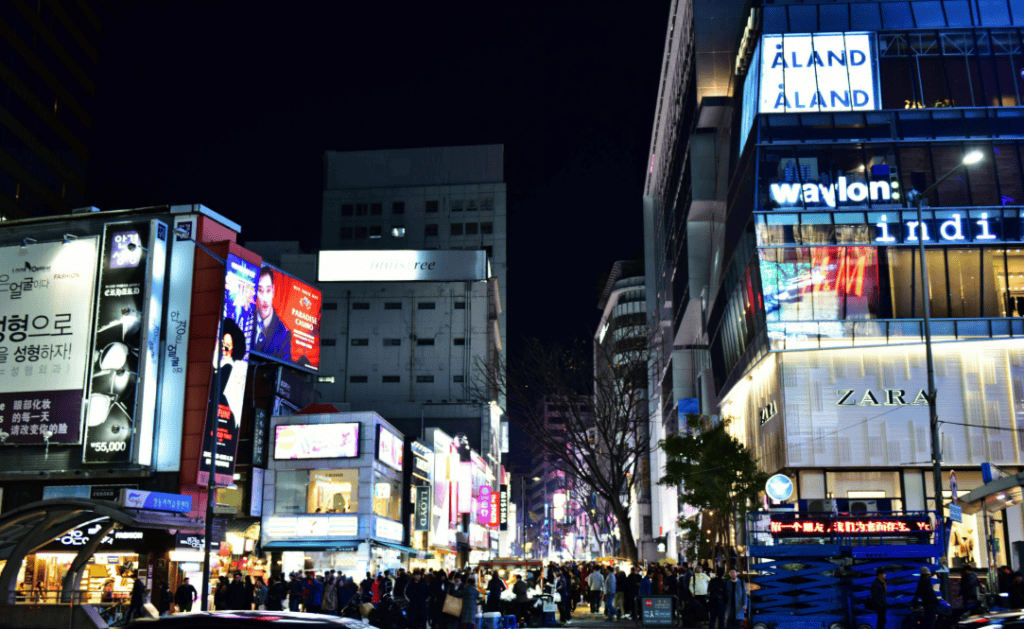
광장시장 (Gwangjang Market – Seoul)
This market is a foodie paradise. Known for bindaetteok (mung bean pancakes) and mayak gimbap (tiny addictive rolls), Gwangjang is where locals and tourists come together for authentic eats.

남포동 (Nampo-dong – Busan)
Busan’s Nampo-dong is filled with seafood street food, from grilled shellfish to spicy stir-fried octopus. The energy of the port city makes the flavors even more vibrant.
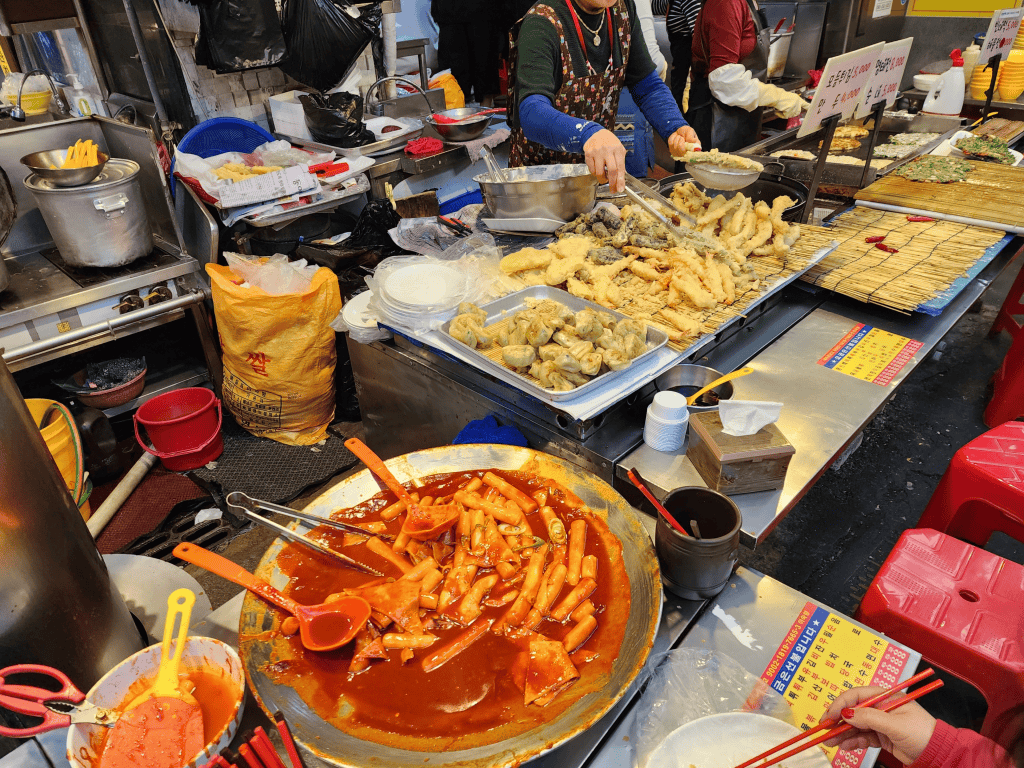
Tips for Enjoying Korean Street Food as a Traveler
- Bring cash – many stalls don’t accept cards.
- Share dishes so you can try more variety.
- Go during the evening when stalls are busiest and freshest.
- Don’t be afraid to try unfamiliar items – that’s part of the fun!
Bringing the Street Food Experience Home
Can’t get to Korea yet? Many Korean supermarkets abroad sell frozen mandu, instant tteokbokki kits, and even ready-to-make hotteok. Cooking them at home is a fun way to recreate the flavors of Korea.



Leave a Reply